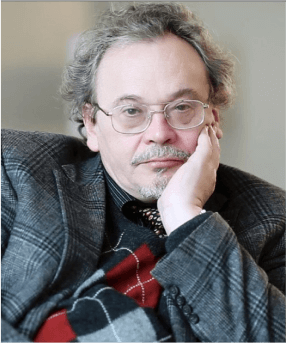- Homepage
- Programme
- Registration
- Practical Guide
- About Neuronus
Faculty of Life Sciences, The University of Manchester, UK

The integration and information processing in the brain occurs though close interactions of two cellular circuits represented by neuronal networks embedded into internally connected astroglial syncytia. Our understanding of glial function changed dramatically over last two decades. This change concerns the whole concept of how the brain is organized, and how the development, life and death of neural circuits are controlled. There is compelling evidence demonstrating that these are the astrocytes that are creating the compartmentalisation in the CNS, and these are the astrocytes that are able to integrate neurones, synapses, and brain capillaries into individual and relatively independent units. Astroglial syncytia allow intercellular communication routes, which permit translocation of ions, metabolic factors and second messengers. The resulting potential for parallel processing and integration is significant and might easily be larger, but also fuzzier, than the binary coded electrical communication within the neuronal networks. The neuronal-glial circuitry endowed with distinct signalling cascades, form a "diffuse nervous net" suggested by Golgi, where millions of synapses belonging to very different neurones are integrated first into neuronal-glial-vascular units and then into more complex structures connected through glial syncytia. These many levels of integration, both morphological and functional, presented by neuronal-glial circuitry ensure the spatial and temporal multiplication of brain cognitive power.
Alexei Verkhratsky is a Professor of Neurophysiology at the University of Manchester. His main research areas are the physiology and pathophysiology of neuroglia, brain aging, and calcium signaling.
Prof. Verkhratsky was one of the first to discover the specific expression of neurotransmitter receptors in astrocytes and their activation in situ by physiological stimulation. His contributions to the doctrine of the fundamental role of neuroglia in brain function are invaluable, reaching from providing the basis for the concept of active and reciprocal neuronal-glial communications to glial Ca2+ excitability. He is also the author of the first-ever Textbook on Glial Neurobiology, widely used as a reference book in the field.
Alexei Verkhratsky received his PhD at the Bogomoletz Institute of Physiology at the Kyiv Medical Institute in 1983. Afterward, he worked at the Department of General Physiology of the Nervous System, Bogomoletz Institute of Physiology for several years. In 1989 he joined the laboratory of Helmut Kettenmann at Heidelberg University, where he got introduced to neuroglial research. After subsequently being a guest scientist in several research institutions in Germany, Alexei Verkhratsky moved to the UK, where he accepted a position at the University of Manchester.
Popov, A., Brazhe, N., Fedotova, A., Tiaglik, A., Bychkov, M., Morozova, K., Brazhe, A., Aronov, D., Lyukmanova, E., Lazareva, N., Li, L., Ponimaskin, E., Verkhratsky, A., Semyanov, A., 2022. A high-fat diet changes astrocytic metabolism to promote synaptic plasticity and behavior. Acta Physiol. (Oxf). e13847.
Garaschuk, O., Verkhratsky, A., 2019. Physiology of Microglia. Methods Mol. Biol. 2034, 27–40.
Kettenmann, H., Kirchhoff, F., Verkhratsky, A., 2013. Microglia: new roles for the synaptic stripper. Neuron 77, 10–18.
Verkhratsky, A., Li, B., Scuderi, C., Parpura, V., 2021. Principles of Astrogliopathology. Adv. Neurobiol. 26, 55–73.